“Obedience. Cleanliness. Patience. Humility. No questions, and no complaining.”
Level 16 opens in a drab, nondescript building. A legend painted on the wall denotes this as being Level 10. Groups of young girls are playing games and preparing for bed. They discuss what they will do when they leave. A buzzer rings loudly, interrupting all other activity. The girls form a single-file line in the hallway, and 1950s music begins playing over the loudspeaker.
A camera watches closely as the girls each take turns washing up. One of the girls, Sophia, drops her jar of soap, which goes rolling away. She worriedly leaves the line and scrambles to find her lost item. She calls out for Vivien, and soon a second girl leaves the line to help with the search. Unfortunately, this brief distraction is not brief enough. Red lights come on, and a siren begins to blare. Vivien returns to the sink and begins to wash up, but soon a pair of guards come and drag her away. Sophia does nothing to assist, despite Vivien’s pleas for aid. Welcome to the Vestalis Academy.

Welcome to the Vestalis Academy.
This is our introduction to the near-future world of writer-director Danishka Esterhazy’s astonishingly effective Level 16. Most of the characters glimpsed to this point are female, but they hold no power. The only men glimpsed are the two guards, who silently maintain strict discipline. The young girls behave as required because of indoctrination to routine, and the fear which drives self-preservation.
The film then jumps ahead an indeterminate number of years. In the background, a sign painted on the wall denotes that this is Level 15. A group of teenage girls have gathered around a television. The video on the screen reviews the qualities inherent in “clean girls.” Vivien is among the girls, and seems not just older but also harder and more guarded. She tracks the passage of time like a prisoner in a cell.
Soon we meet Miss Brixil, who serves as the school’s headmistress. Miss Brixil tells the girls they will be passing to Level 16, and exhorts them to remember their lessons. Her demeanor is kind and calm – at least until one of the girls raises her eyes. The mask of pretense drops, and Miss Brixil angrily tells the girl, “Eyes down!” Miss Brixil provides the girls with their new hall assignments, before speaking sharply to the guards in Russian.
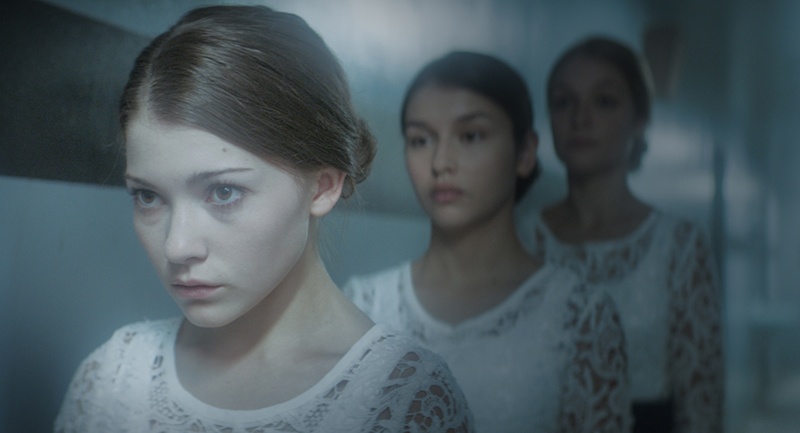
The girls at Vestalis have been raised to believe that the world outside has been corrupted.
When Vivien goes to her new assignment in Rose Hall, she encounters Sophia. This seems to be the first time they have seen each other since the events of the film’s opening. It is no kind reunion. We again see the hard edge Vivien has gained during her time at the Vestalis Academy.
In addition to their routines of chores, Level 16 introduces the girls to a regular regimen of vitamins. A calm, soothing male voice comes over the loudspeaker; the girls once more dutifully line up. These vitamins supposedly prevent disease. The girls at Vestalis have been raised to believe the world outside is corrupted. The air and the water are poisoned. While the academy has instilled feminine virtues in the students, they have neglected many important aspects of learning. We soon discover that the girls cannot read, even something as simple as their own names. The girls are all named after starlets from Hollywood’s golden era. Their exposure to popular culture seems limited to films and music from the 1950s and 1960s.
Vivien soon discovers that all is not as it seems, and that the Vestalis Academy harbors horrible secrets. She must use this knowledge to help her classmates escape, even though the outside world may be deadly.

[Writer & Director Danishka] Esterhazy has likened the film to Logan’s Run and Jane Eyre.
To say anything more of the twists of Level 16 takes would be to rob the viewer. I first saw the film at Fantastic Fest, and had only read a brief blurb about the film. I was not familiar with any of Danishka Esterhazy’s previous work. Level 16 easily won me over, and it is a film that is just as powerful after repeated viewings. Level 16 is unashamedly feminist, and at the same time a film meant for all. The near-future science fiction tale includes moments of impactful horror. One scene in particular leaves me cringing, even after having seen Level 16 four times.
Some viewers have compared Level 16 to The Handmaid’s Tale,though that isn’t entirely apt. They share some similarities, but Esterhazy has likened the film to Logan’s Run and Jane Eyre. (I also drew comparisons to films such as Brazil, Battle Royale, and Get Out.) The film has an important message, one that resonates soundly in our current time. Level 16 is thought-provoking without being preachy, and it never speaks down to its audience. It exposes the dangers of systematic oppression while telling a thoroughly engrossing story.
Danishka Esterhazy’s skillful direction is on full display. The composition of shots throughout reinforces the difference between environments inhabited by the students, and those of the staff. It also communicates visually the isolation of these characters, even when they are surrounded by their fellow classmates. The cinematography and art design complement the direction, resulting in a world both richly detailed and fully realized. Seemingly small details play into the larger picture, hinting at a world I want to know more about.
Considering that most of the cast is made up of teenagers, casting the film was an important task. Katie Douglas plays the older Vivien, and carries the bulk of the film. She displays a depth of emotion here – often guarded, sometimes cutting, and occasionally hopeful. Douglas is, without a doubt, the film’s emotional core. Celina Martin plays Sophia, who wants to make up for her past failures. She carries the weight of what she has discovered, and the dread that has come with those discoveries. Alexis Whelan portrays Ava, who is friendly to Vivien when it would benefit her. Ava is shown to be opportunistic, illustrating that “there are no friends here.”
The two main adults are Miss Brixil and Doctor Miro. Sara Canning is Miss Brixil, the school’s headmistress. She carries herself with poise and grace, but there is a quick anger lying just below the surface. Though Miss Brixil carries some degree of authority, she is ultimately in much the same scenario as the students. Doctor Miro is played by veteran actor Peter Outerbridge. He puts forth a calm, measured demeanor and apparently cares for the girls of Vestalis. His emotional waters run deeper and darker.
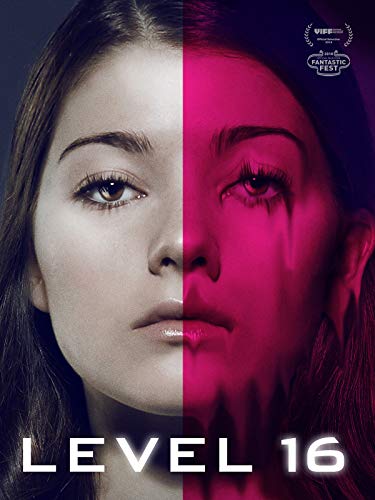
Katie Douglas plays the older Vivien, and carries the bulk of the film.
The score of the film is also worthy of mention. Composed by Menalon (the duo of Joseph Murray and Lodewijk Vos), the music is a character unto itself. The score is reminiscent of classic works from both John Carpenter and Vangelis, without ever being derivative. Equally as important, the score is never needlessly bombastic. It takes center stage when appropriate, then pulls back when a softer approach is called for. In a great year for horror and sci-fi scores, Menalon’s work is among the best.
Level 16 was a labor of love for Danishka Esterhazy, and it shows in every aspect. The years spent bringing this vision to fruition honed it to a razor-sharp edge. Level 16 was easily in my top five films of Fantastic Fest. It also shares a similar place for films I saw in 2018.
Level 16 is currently available on VOD services, and will be released on physical formats on April 30th. Additionally, it is rolling out to select theaters in the coming month. Whatever venue works best for you, I highly recommend that you seek out Level 16 at your earliest opportunity.
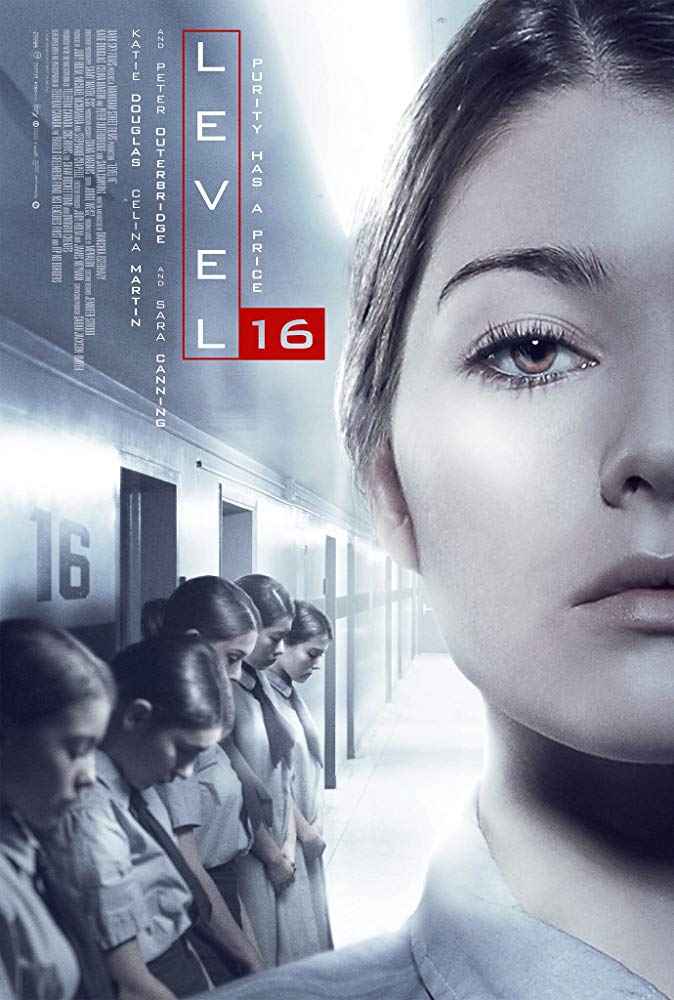

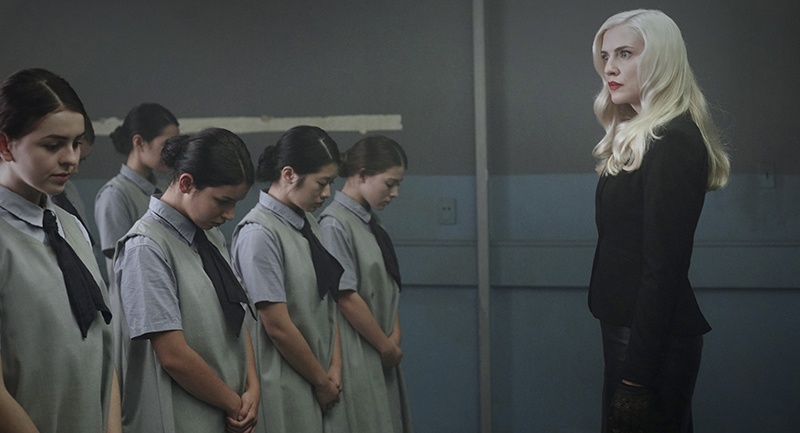
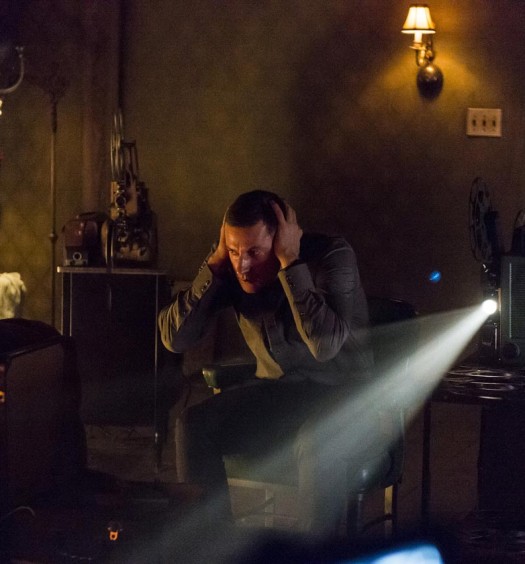
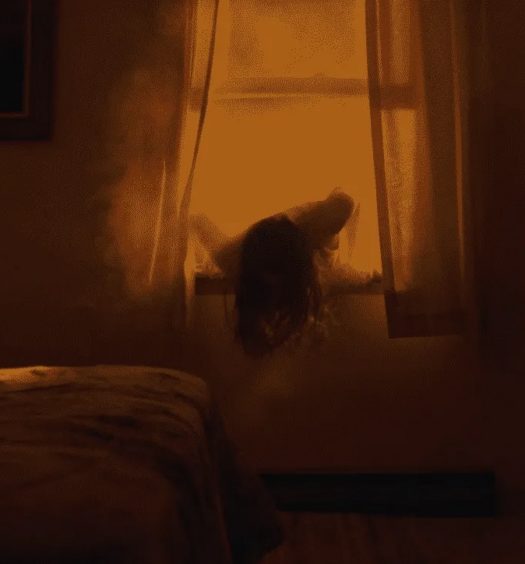




























April 2, 2019
[…] from last year’s Fantastic Fest was Danishka Esterhazy’s Level 16 (see my review of the film here). I had a chance to speak with the director after the screening, but as so often happens, after […]